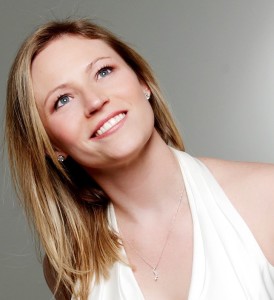A Guest Post by Wayland Smith
I was asked to write about finding a balance between work, life, and writing. Instead of talking about my writing credits, I’m going to run down my weekend as a way of showing what I know about the struggle to find time to write. It’s something I understand.
My regular shift is a long, overnight one. Thursday I went in to work with my shift starting at 6 PM. I was supposed to get off work at 6:30 AM, but there were some issues and our usual shortage of staff, and I ended up being released at about 12:30 in the afternoon. By the time I got home, I had been up for 24 hours. I had the rest of Friday and Saturday off, then worked a different job Sunday from 4 in the morning until 9 at night with one break in that stretch. With all that, I still got a few thousand words done over the weekend, and finished a chapter of one of my current works in progress. That’s not, “Hey, I’m cool,” that’s me showing that it doesn’t matter how busy you are, you can write if you chose to.
I hear people asking all the time, “When do you find time to write?” The answer is a simple one, but it’s one a lot of people don’t like. You fight for it. You make a commitment to yourself and you stick with it. Some people write every day, some have a word count per week, or month. It doesn’t really matter what you set for yourself. What matters it that you DO it.
Sometimes that means you don’t get to watch the game with your friends. Sometimes you don’t get to the movie you wanted to see. But, as I’ve heard many other people who are much more successful than I am so far say (and this may be part of why they are successful): Writing is a job. If you’re at all serious about it, you have to approach it like that. Jim Butcher has said, “I don’t have a muse, I have a mortgage.” That’s the attitude you need to get the words down.
So how do you find the balance? Well, that’s something you have to think about carefully. I believe the usually accepted statistic is that something like ten percent of writers manage to actually make a living off their writing. The rest of us have jobs in addition to writing. And, if you’re fond of eating, not living in a relative’s basement, and occasionally going out (or to cons), you need to keep the job.
Family is important, whether it’s a traditional tied by marriage and blood kind, or people who have become your family over time. You need these people in your life. If you don’t have them, you’re not well balanced, and that comes out in your writing, which suffers.
You need to manage your time, and you need to do it carefully. It’s going to be full of compromises. Occasionally, you’re going to have to go to work when you’d really rather be chasing the latest story idea. Sometimes, you’re going to have to tell your nearest and dearest and that you have a deadline coming up and you need some uninterrupted writing time. And sometimes, the voices in your head, or your imaginary friends, or however you like to think of it, are going to have to take a back seat so you can spend some time with the people you love. Or at least like.
You need to manage to be nice about it, but really firm. If you’ve promised time to your family, don’t slip out and start writing. If you have a goal that’s important to you and you need to put in a big push to get there, turn off your phone, shut off your internet connection, and write. It’s both the simplest and the hardest thing about writing. Writers write. Not talk about writing, not say, “I really should get some words down.” They write. And then write more. And revise and edit and rewrite. And while they’re doing all that, they have to keep a job and relationships with the people who are important to them.
All that said, I can offer a few suggestions about making some time. Note, making, not finding. You’re not going to suddenly trip over an extra hour somewhere. If you do, let me know how that happened. A few standbys that a lot of people I know use are either getting up half an hour earlier and/or writing during your lunch hour. If you bring your lunch to work, then A) it’s generally cheaper and B) the time you spent going somewhere, waiting in line, buying something, and then finding a table to eat it is time you can write. Yes, this requires some planning and dedication. So does writing. Remember those bits about it’s a job and making the time?
If your writing is really important to you, if you’re going to pursue a full time writing career no matter what, find a job that lets you write. I’ve heard Brandon Sanderson say he got a job as the night desk man at a hotel for just that reason. Night time security guard works, too. Yes, those are really radical changes to make to your life to get time to write. But then you’re back to the balance issue again. What are you willing to give up to move forward with your writing?
I’m not trying to scare anyone, or paint a picture of doom and gloom. I have a full time job, and work a few part time ones, and have a decent social life. I also managed to write just shy of 500,000 words last year. It can be done. You just to plan your time carefully. It’s worth it to me. Whether it is to you or not is something only you can decide.
Wayland Smith:
WAYLAND SMITH is the pen name for a native Texan who has lived in Massachusetts, New York, Washington DC, and presently makes his home in Virginia. His rather unlikely list of jobs includes private investigator, comic book shop owner, ring crew for a circus (then he ran away from the circus and joined home), deputy sheriff, writer, and freelance stagehand. Wayland has one novel out so far, In My Brother’s Name, and short stories in the anthologies “This Mutant Life: Bad Company”, “HeroNet Files, Vol 1,” “SNAFU: An Anthology of Military Horror,” and “Legends of the Dragon,” among others. A black belt in shao lin kung fu, he is also a fan of comic books, reading, writing, and various computer games (I’ll shut Civ down in one more turn. Really). He lives with a beautiful woman who was crazy enough to marry him, and the spirits of a few wonderful dogs that have passed on.


